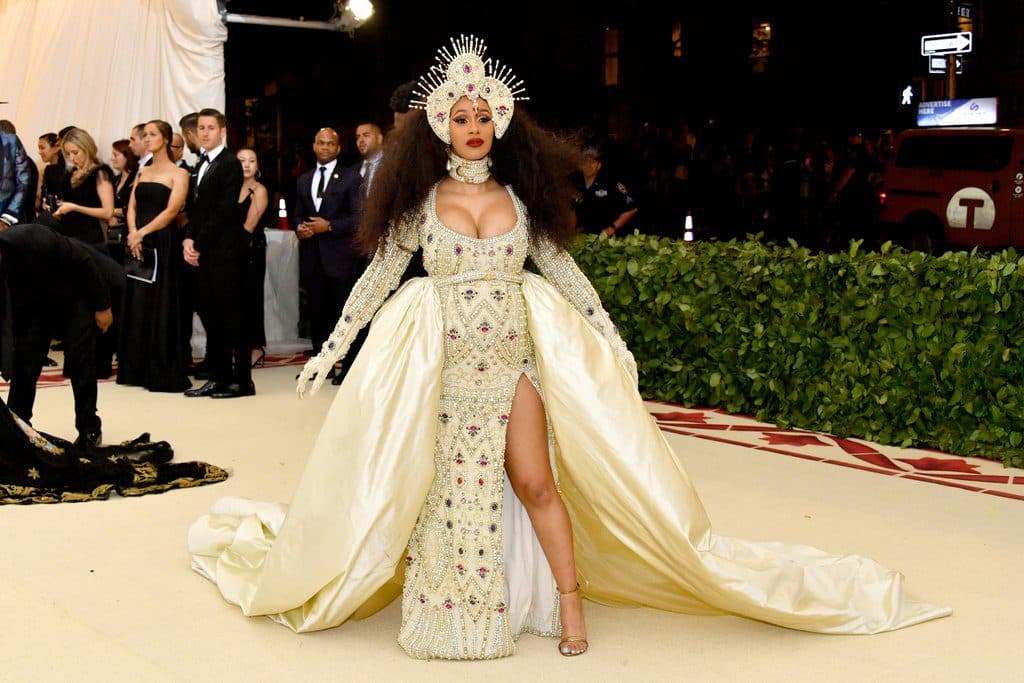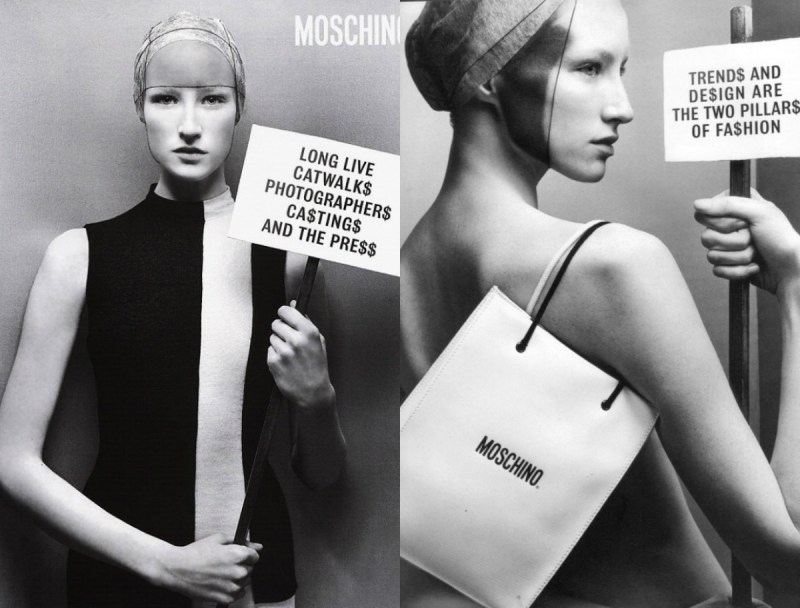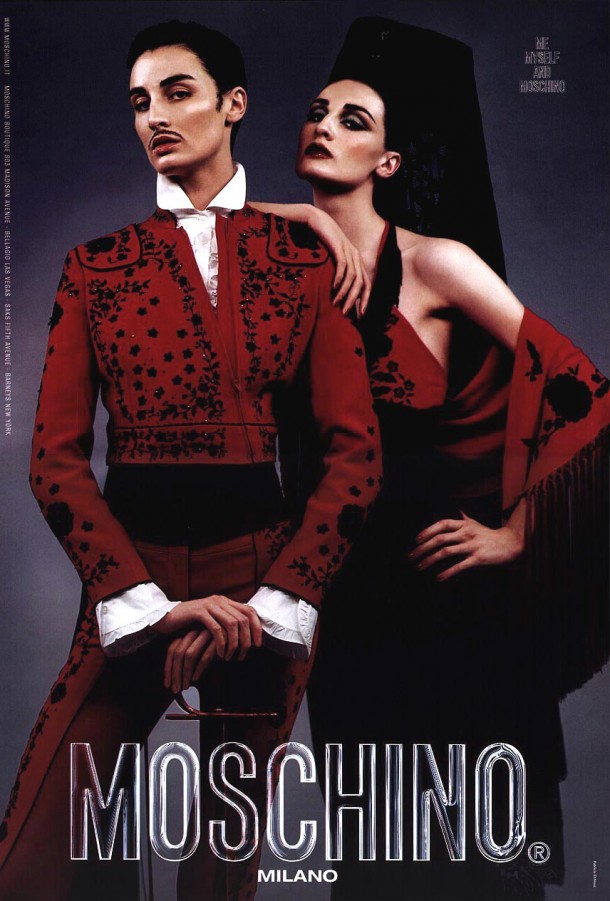
Voce del dizionario della moda MAM-E: Moschino
VOCE DEL DIZIONARIO DELLA MODA MAM-E: MOSCHINO
Moschino è una delle nuove voci del Dizionario della Moda MAM-e, il più completo dizionario del mondo, con oltre 4.500 voci, in italiano, inglese e cinese.
Seguirà la pubblicazione di altre voci del dizionario realizzate in collaborazione con Domus Academy.
Per tutte le informazioni sulla pubblicazione della voce del dizionario del vostro Brand potete contattarci su info@mam-e.it.
MOSCHINO
It is an Italian luxury fashion house founded in 1983 by Franco Moschino. Known as the enfant terrible of fashion due to its unconventional ways.

Index
- Moschino, the Origin
- Moschino Style
- Cheap & Chic
- Exhibition: Enfant Terrible
- Moschino Acquire by Ferretti Group
- Moschino Collections
- Brand Development
- Watches
- Official Partners
- Supporting Charity
- Jeremy Scott
- Current Situation
Moschino, the Origin
Franco Moschino (1950-1994) was an iconoclastic designer who never wanted to be known as such. He arrived at the top by overturning all the rules: of good taste, style, advertising, presentations, and runway shows. The industry called Moschino the enfant terrible of Italian fashion, which means a person who behaves in an unconventional or controversial way.

Franco Moschino studied Fine Arts at the Accademia di Brera in Milan. He planned to be a painter, but his role as an illustrator for Versace in 1971 set him on the fashion road. In 1977 he was fashion designer for the historic Italian label Cadette, where he honed his skills and developed his own precise stylistic language.
Moschino Style

In 1983 he started his own label, with an explosive mix of paradoxes, challenges, and elegance which criticized and mocked the excesses of the fashion system and the paroxysmal society which was the image of the 1980s. The company founded by Franco Moschino, Moonshadow S.r.l., debuted with its first collection, which was ironic, surreal, ingenious, perverse, and totally represented Moschino’s style. Ironically, his style declared “stop the fashion system,” but its success was because of that system. A theorist of freedom and improvisation, he claimed not to be an inventor, but a “restaurant trying to provide those well-cooked traditional dishes which were invented by unknown cooks.”

His work did indeed revisit all the aesthetics of the century, adopting and reworking them with a hybrid injection of humor. He replaced the buttons of Chanel-style suits with windmills, and embroidered black sheath dresses with their price. He made skirts out of ties, jackets with fried eggs on the pockets, T-shirts emblazoned “Moschifo” (schifo means “disgusting” in Italian), dressed printed with the words “no dress no stress,” tops with trompe-l’oeil breasts.

He continued to break the rules with multiple sleeve shirts, multicolored blazers, waistcoats printed with cartoons, suits with appliquéd symbols of geese, Andalusian skirts made out of tartan, and toreador-style evening jackets. His personal style, despite being unpredictable and striking, was in fact based on classic, well-made shapes, perfectly cut and with seductive details which proved attractive to all markets.
Cheap & Chic

The first line to be launched was Moschino Couture, and soon after came Cheap & Chic in 1980, Donna and Uomo in 1986, Moschino Jeans, lingerie, swimwear, bags, scarves, jewelry, perfume, all of which broke with fashion clichés. Publications, advertisements, and runway shows were similarly full of surprises. He would send pairs of knickers to actresses instead of invitations, he made his models go down the runway on their knees, he appeared in his own adverts in disguise, and created a fake Cardinal to promote his range of jeans.

The brand created a scent for men with a two-headed bottle, and his women’s fragrance was provided with a drinking straw. He published Dadaist catalogues and created every kind of provocative entertainment imaginable, saying
“There is no creativity without chaos. The Moschino concept is based on complete freedom of choice. There are no rules. You wear whatever color you want, and if you still like what you were wearing last year, you can wear it this year, and next year if you want.”
All of this of course rang a strange note in a period where prêt-à-porterruled, and labels dictated fashion.
The Exhibition: Enfant Terrible

In 1993 the show Ten Years of Chaos was released at the Permanente di Milano. It was a journey through thousands of Moschino’s creative anomalies, culminated in an exhibition of paintings where the designer revealed to the public for the first time his original persona, that of a painter. The exhibition was held at the end of 10 years of the life and work of this enfant terrible of Italian fashion, who in this short period had left an indelible mark on the world which he so wanted to challenge, becoming himself a cult figure, and obtaining cult status for his clothes.
Moschino Acquired by Ferretti Group
He passed away on September 1994 from AIDs. His staff, under the leadership of his closest collaborator, Rossella Jardini, have continued his work and succeeded in the miracle of consolidating the success of the brand. In 1995, the city of Florence granted Franco Moschino the Pitti Immagine Award. Later, in June 1999, for the first collection of Moschino Life, presented a new version of the famous “survival jacket”, designed in 1991. Later in Fall, the brand was taken over by the Ferretti Group. In the following years, many exhibitions took place, always praising Franco and his professional life. In March 2001 the brand presented a chronological collection of images of the windows designed by the charismatic “monellaccio” (rascal). Two years later, during summer, some paintings that Franco Moschino made in 1989 were exhibited for the first time in Rome.
Moschino Collections
In 2002 the brand released the memorable “On the road” men’s collection, combining vintage pieces with sports and formalwear. This was a paradoxical look, covering every possibility, and contradicted everything with which we were familiar. The collection was ingeniously invented and the disorder was delightful. The same approach was taken for the womenswear collections in the cheeky 2003-2004 fall/winter show, which saw a complete mechanic’s overall decorated with frills, and a necklace made out of a metal spring-catch.

Prêt-à-jouer will always be the way for the brand. The range continues to produce the thousand anomalies which continue, as in the past, to turn some items into genuine status symbols. Irony and unbridled fantasy go hand-in-hand, particularly in the Cheap & Chic diffusion line. One style, many styles, for those with more enthusiasm than money. Fashion as the art of putting an outfit together in total freedom. Blazers with no buttons which fasten with a safety-pin, or sprinkles of sequins on patched pants.
Brand Development
Later in May the company entered a joint venture with Bluebell Far East (49.9%), Moschino (50.1%) created Moschino Far East, to aid distribution in the Far Eastern market, including Japan. Sales of €70 million were envisaged by 2006. This is an agreement that seals the long collaboration between these two businesses: Bluebell has been distributor for the brand in the East since 1989, apart from in Japan, where distribution has been managed until now by Sanki Shoji.

Then in July, they signed a licensing contract with Sector to produce a collection of watches under the name of Moschino. The Sector Group, with 15 production partners worldwide, had 150 employees and sales of around €90 million in 2001. It was responsible for around 14% of watchmaking in Italy.
In 2002 the label celebrated its 20th birthday. The first Parisian store (with seven windows) was opened at 32 Rue de Grenelle, in the 7tharrondissement, and a shop was opened in central Moscow, in the Petrovsky Passage Mall. The brand has a distribution network of 24 dedicated stores, and 31 franchises in department stores. Shares in Moschino Spa are held 70% by Aeffe and 30% by Sportswear International, and in 2001 sales equaled €285 million.
Watches
In July 2003 they launched a store in the Rome full of the new watches, the heart-shaped “Time 4 love” and “Time 4 Peace.” Each has charms representing symbols of peace, love, a lucky horn, and the initial “M” of the late designer. “I love 4 ways” has a linked chain, inspired by old pocket watches. “I love Moschino” has a leather strap, and “My name is Moschino” a traditional metal strap.

A year later, Vincent Darré, head of creation and development of the Moschino collection from 2001 to 2004 left the label to become artistic director at Emanuel Ungaro.
Official Partners
In 2007, under the leadership of Thierry Andreatta (CEO from 2007 to 2009), Moschino opened a new boutique in New Dehli, India, where it first expanded in 2005. In May, the first headquarters in Eastern Europe was opened in Lithuania.
The same year important agreements were concluded with several partners. Including Scienward International Holdings Limited for the franchise and distribution in China, Allison for creating and distributing Moschino’s eyewear, Binda Group for the manufacture and marketing of watches and jewelry. In 2008 the teen and baby collections were launched too.
The same year, in collaboration with Independent Ideas, Lapo Elkan’s communications agency, Moschino presented Love Moschino collection, a new face for the twenty-year Moschino Jeans collection. The strategy was to renew it, making it more appealing for new generations.
In March 2008, the new fragrance Hippy Fizz was launched in the market, produced and distributed by Euroitalia. Then, in September, the boutique of New York was opened. Also, in 2009 stores were opened in Dubai, Saudi Arabia and Shanghai. Then a year later in Vietnam. At this point, Moschino’s expansion now reached every corner of the world.

The original interest of Franco Moschino towards modernity has remained at the center of the company. In 2010, under the supervision of Rossella Jardini, in collaboration with Jo Ann Tan, Maison was inaugurated in Milan, now NH Milano Palazzo Moscova. It represents a fairytale world where fashion is a means to celebrate the values and the joy of living.
Supporting Charity
Active in the social, signed numerous collaborations to help children and associations. In 2007, supported Amref by selling some of its design on Yoox. In the same year, Unicef asked the brand to make a plexi doll for fundraising for the prevention and care of children with HIV. The following year, in collaboration with the Isetan Shinjuku Department Store in Tokyo, Moschino presented a series of mini dresses from the spring/summer 2008 collection, whose proceeds were donated to the Red Cross of Tokyo to support children.
Jeremy Scott

In 2014 the brand started to relaunch, with the appointment of the new creative director, Jeremy Scott. Scott was born in 1974 in Missouri, USA, and studied at the Pratt Institute in New York. In 1990 he launched his own line with a fashion show in Paris. Scott’s brand has a very sophisticated pop style, using very bright colors, lettering, symbols and icons taken revisited from the eighties and nineties. The sporty style helped the designer to forge several partnerships with activewear brands as Adidas.
The company appointed Scott after Rossella Jardini, former Moschino creative director, presented her last collection collection for the Italian fashion house during Milan Fashion Week. Jeremy Scott has been noted in recent years also for a very direct communication on social networks, where he posted accessories and extravagant clothes. Also, his friendship with international pop stars like Rihanna, Nicki Minaj and Katy Perry, who began to wear his clothes at concerts and public appearances, thus increased his fame.

In February 2014 the first collection by Jeremy Scott was presented, inspired by some American icons, including McDonald’s. Someone criticized the choice, others appreciated. Another novelty is the elimination of Cheap & Chic line and the birth of the “Boutique Moschino” line. The brand announced that the “Moschino Boutique” line targets a wider market and that prices will be about 40% lower than the main line.

The first positive results of the new course of the brand contributed to Aeffe sales results, which acquired the brand in 1999. There were in fact revenues of €251.5 million, an increase of 0.2% compared to last year. Also, the sale of the Spring/Summer 2015 collections has increased by 15% from a year earlier. Then, in 2015 Jeremy Scott wins the “Womenswear Designer of the Year”.
At the same year, Moschino and Barbie teamed up for a partnership, produced a Moschino Barbie doll and 8 pieces ready-to-wear collection. Then, during 2016 spring summer fashion week, launched a new capsule collection called “Clothed For Construction.” This capsule collection is also designed by Jeremy Scott and only available on online.

Current Situation
In July 2017 launched a limited makeup collection by collaborating with Sephora. This collaboration bring out the best combination of beauty products and luxe accessories. The brand’s signature playfulness together with Sephora’s high quality beauty products served both bold Moschino women and everyone else.

NEWSLETTER
Vuoi ricevere Mam-e direttamente nella tua casella di posta? Iscriviti alla Newsletter, ti manderemo un’email a settimana con il meglio del nostro Magazine.

Ralph Lauren, al central park come nel 2008

